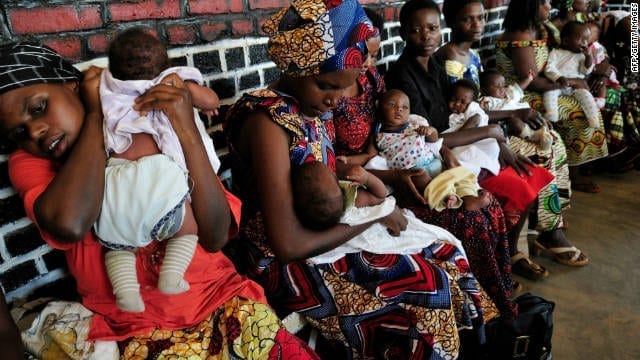File: Women and their babies Credit UNFPA Ghana[/caption] Residents within the Nzema East Municipality of the Western Region are being denied access to healthcare due to inaccessible road network to health facilities in the area. Worsening road network within the municipality over the years is said to be causing outrageous increase in population in the area as women in their reproductive ages lack information on family planning, according to Hɛn Mpoano, a nongovernmental organisation. The said population increment, the NGO said, is not proportional to the area’s natural resources, a situation it described as worrying. On the back of this, it has launched a health and environmental project in the municipality dubbed “Integrating Health and Family Planning into Greater Amanzule Wetland Landscape Conservation and Small Scale Fisheries Management in the Western Region of Ghana”. Funded by the USAID, the project seeks to build capacity at the district level for population, health and environment (PHE) professionals. It also aims at integrating, establishing and strengthening community-based distribution systems for contraceptives and fosters institutional collaboration across sectors to build support for future PHE initiatives. The 10-month project targets 10 communities in the Greater Amanzule Wetland landscape, covering Sanwoma, Eziom, Ajomoro Eshiem, Kukuavile, Adelekazo, Alloakpoke, Ebonlowa, Old Kablesuazo, Metika and Efaso. The project is built on the Coastal Sustainable Landscapes Project (CSLP) and the Sustainable Fisheries Management Project (SFMP) which aims at building capacity for improving landscape resilience with focus on sustainable management of estuarine fisheries, conservation of mangrove ecosystems and other coastal biodiversity. Both CSLP and SFMP are empowering community inhabitants leading to a positive attitude towards savings, improved management of fisheries habitats and mangrove ecosystems. Speaking at the launch, project manager for Hɛn Mpoano, Stephen Kankam, said the project will cater for an estimated 150,000 residents who depend directly on natural resources associated with the Greater Amanzule Wetland as source of livelihood and food security. He said other beneficiaries include identifiable state and private institutions operating in the area. Municipal chief executive for Nzema East, Frank Okpenyen said the assembly has taken steps towards addressing “the impact of mounting human pressures and unsustainable extraction patterns of the rich natural resources and unique biodiversity found in the lower Ankobra river basin”. He admitted the PHE project has “lowered the barrier to healthcare delivery in the communities of the lower Ankobra basin catchment by providing a boat to facilitate access of district health workers to the isolated communities” These initiatives, he said, is in line with government’s efforts to improving healthcare delivery for the people. Meanwhile, Hɛn Mpoano, has provided a boat for health workers to reach isolated communities in the Nzema East Municipality. By Loveridge A. Okyere & Benjamin W. Peters|3news.com|Ghana]]>
NGO steps in to stop 'outrageous' population increment in Nzema East
Advertisement


